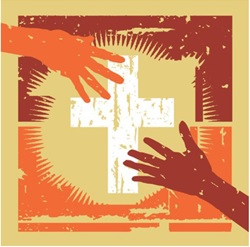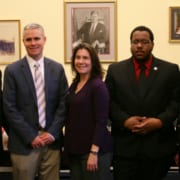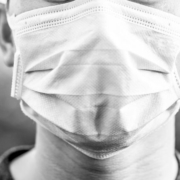Coronavirus and our Public Policy Pathology
BY DENNIS KALOB | March 23, 2020
COVID-19 (the novel coronavirus) is revealing the seriousness of our public policy failures here in the U.S. It begins with our lack of universal healthcare. Even though the Affordable Care Act, which was passed in 2010, significantly reduced the number of uninsured, we still have nearly 30 million Americans with no health care coverage and millions more underinsured.
In other words, millions of people in the U.S. do not have access to affordable health care and often delay seeking care for fear of its costs. This is certainly a problem in the best of times, but in a nation that is trying to fend off a growing viral epidemic it can have tragic consequences. Containing a life-threatening virus first and foremost requires that everyone be in a position to rapidly access testing and treatment. We are harming national public health by refusing to join the rest of the developed world in assuring universal health care.

[Image: Centers for Disease Control and Prevention]
The vast majority of countries across the globe have national policies mandating paid sick days for their workers; the U.S. does not. There are some states and cities with such policies, and research has shown that they are effective. One study from 2017 examined jurisdictions with and without paid sick leave mandates. Researchers found that cold and flu rates declined after workers had access to paid leave. The decline was as much as 40%.
Furthermore, the U.S. has no national policy providing paid time off from work to care for sick family members. At any time, but, particularly in a health emergency, we all need to have the ability to respond to those close to us and who require our care. The U.S. is one of a handful of developed countries in the world without nationally-mandated paid leave for family illness.
We can add to these long-standing public policy failures more recent examples of short-sightedness. In May of 2018, the Trump administration closed a National Security Council office that was dedicated to managing pandemics. And over the past three years, there have been repeated attempts by the Trump administration to cut the budget of the Centers for Disease Control and Prevention (CDC). Even in Trump’s recently proposed budget for next fiscal year, the CDC is on the chopping block.
It seems, whether due to short term policy decisions or more structural failings, we are facing a level of risk and vulnerability that should be considered completely unacceptable. Let us hope that this current crisis can give us the impetus to take stock of our public policy weaknesses and mistakes and from there go forward with the reforms necessary to make our nation healthier and stronger.









Health is wealth. Life is a precious gift. May all humanity on our Planet be blessed with good health of mind and body.